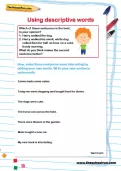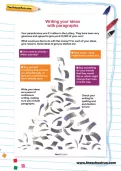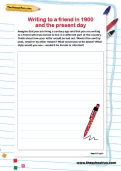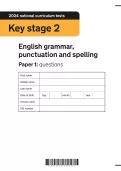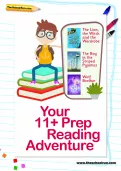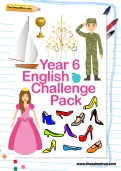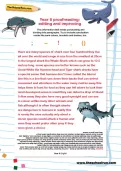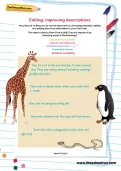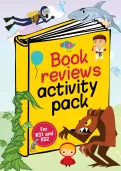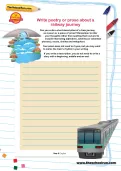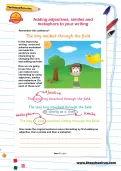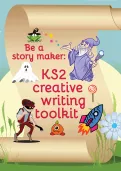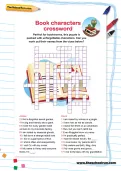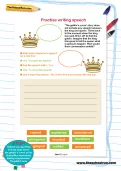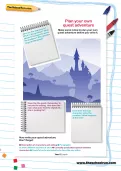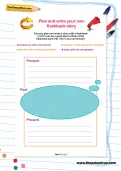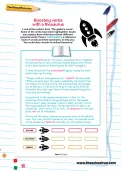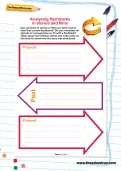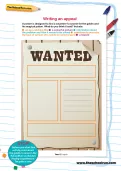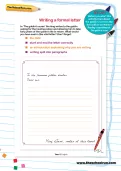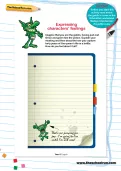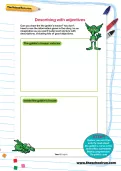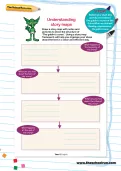Help your child prepare for the Year 6 English SATs, taken at the end of Key Stage 2, with some revision and at-home practice. These KS2 SATs past papers from 2024 are the official past papers from the Department for Education, used in schools.
or
Register to add to your saved resources
Reading is an 11+ exam preparation superpower! Each of the 40 books in our 11+ exam prep reading adventure has been chosen to act as a story-filled portal to new vocabulary and will help your child get to grips with challenging texts the fun way – no flashcards required!
or
Register to add to your saved resources
Already a subscriber? to view this content.
Challenging reading comprehensions and activities for Year 6 readers and writers, designed to stretch your child and offer them the opportunity to explore their year-group topics in greater depth.
or
Register to add to your saved resources
Already a subscriber? to view this content.
This information text needs punctuating and dividing into paragraphs. Try to include punctuation marks like semi colons, brackets and dashes, too.
or
Register to add to your saved resources
Already a subscriber? to view this content.
Any piece of writing you do can be improved by correcting mistakes, editing and adding lots more information to your first draft. This report about a Year 6 trip is dull! Can you improve it by including some of the following?
or
Register to add to your saved resources
Already a subscriber? to view this content.
Help your child explore books and language with TheSchoolRun's Book reviews activity pack, a huge collection of reading comprehension and creative writing resources for Year 1 to Year 6.
or
Register to add to your saved resources
Already a subscriber? to view this content.
Can you write a short description of a train journey, as a poem or a piece of prose? Remember to infer your thoughts rather than spelling them out and to include interesting adjectives, adverbs (or adverbial phrases), nouns, similes and metaphors.
or
Register to add to your saved resources
Already a subscriber? to view this content.
The boy walked through the field.... a bit of a boring sentence, yes? Can you make it more interesting by first adding an adjective, then a simile and then a metaphor.
or
Register to add to your saved resources
Already a subscriber? to view this content.
Does your child long to write stories? Our KS2 creative writing toolkit is packed with writing prompts to inspire them and gorgeously-illustrated pages to write on.
or
Register to add to your saved resources
Already a subscriber? to view this content.
Classic characters are unforgettable, whether they're falling down unusual rabbit holes, prowling through the jungle or breaking their slates over unfortunate classmates' heads. How many famous characters from children's literature can you identify in this crossword puzzle?
or
Register to add to your saved resources
‘The goblin’s curse’ story does not include any speech between the king and queen. Think back to the moment when the king has sent Orion off to find the goblin. Imagine that the king has gone to tell the queen what is going to happen. How would their conversation unfold?
or
Register to add to your saved resources
Already a subscriber? to view this content.
Make some notes to plan your own quest adventure before you write it. Who are the characters? What is the problem? What needs to be found to solve the problem? Who decides to go on the quest? Now write up your quest adventure, but don’t forget: description of characters and setting; paragraphs to show different sections of story; correctly punctuated speech between characters; powerful verbs and adverbs to describe any action.
or
Register to add to your saved resources
Already a subscriber? to view this content.
Can you plan and write a story with a flashback in it? It may be a good idea to think of the flashback part first. See if you can include: sentences with connectives; speech with correct punctuation; mention of the character’s feelings; texts split into paragraphs.
or
Register to add to your saved resources
Already a subscriber? to view this content.
Look at this extract from ‘The goblin’s curse’. Some of the verbs have been highlighted. Could you replace them with two or three different, powerful verbs? Use a THESAURUS, a reference book of words and their synonyms, to help you. You could also consult an online thesaurus!
or
Register to add to your saved resources
Already a subscriber? to view this content.
Can you think of stories or films you have read or seen that contain flashbacks? Do you remember an episode of a programme on TV with a flashback? Think about one of these stories and write notes on this sheet to show how the story was structured.
or
Register to add to your saved resources
Already a subscriber? to view this content.
A poster is designed to find a volunteer to search for the goblin and his magical potion (from the story 'The goblin's curse'). What do you think it said? Include: an eye-catching title; a colourful picture; information about the problem and how it needs to be solved; adjectives to describe the type of person who needs to come forward; a reward.
or
Register to add to your saved resources
Already a subscriber? to view this content.
Read ‘The goblin’s curse’ first, then think about the letter that the king writes to the goblin asking for the healing potion. What would you have said in this vital letter? Don’t forget how to set out a letter correctly.
or
Register to add to your saved resources
Already a subscriber? to view this content.
Once you've read the story of The Goblin's Curse, imagine that you are the goblin, having just met Orion and given him the potion. Explain your meeting and then describe how you capture forty years of the queen’s life in a bottle. How do you feel about it all?
or
Register to add to your saved resources
Already a subscriber? to view this content.
Can you draw the the goblin’s house from the story The Goblin's Curse? You don’t have to use the information given in the story, be as imaginative as you want! Label each picture with descriptions, including lots of good adjectives.
or
Register to add to your saved resources
Already a subscriber? to view this content.
Using a story map framework will help you organise your ideas about the text in a clear and efficient way. Can you draw a story map with notes and pictures to show the structure of ‘The goblin’s curse’?
or
Register to add to your saved resources
Already a subscriber? to view this content.
